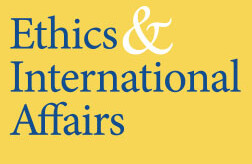To read or purchase the full text of this article, click here.
The critics of the ICC in the Bush administration and its supporters within the
human rights community have one thing in common: they assume that the ICC can
evolve into a powerful institution independent of states, either to constrain
American power or to act on a duty to prosecute to end impunity for
perpetrators. Both overestimate the ability of the court to pursue a legalism
divorced from power realities. The former attribute to the court powers it is
unlikely to exercise, particularly if the United States remains outside the
treaty. This is due, in part, to the safeguards within the Rome Statute, but
more importantly, to the court's dependence on sovereign cooperation, which will
lead it to place a high premium on cultivating the good will of the most
powerful states. The latter overestimate the degree to which courts by
themselves can deter atrocities. The ICC's effectiveness in any particular case
will therefore be dependent on the political consensus of those actors capable
of wielding power in that area. They also underestimate the need to compromise
justice—at least, prosecutorial justice—in cases in which bargaining and
compromise are the central means of facilitating transitions from armed conflict
or dictatorship, and in cases in which the strength of the perpetrators and the
limits of one's power would make legal proceedings either futile or
counterproductive to other interests and values. Hence, decisions to prosecute
must first be subjected to a test of political prudence, and then take place
according to due process and the rule of law.


